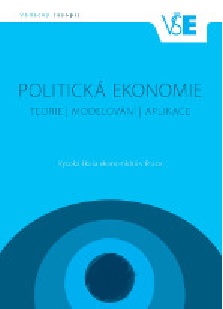Cultural Participation in Later Life Among Older-aged Immigrants in the Czech Republic
Cultural Participation in Later Life Among Older-aged Immigrants in the Czech Republic
Author(s): Eleftherios Giovanis, Sacit Hadi AkdedeSubject(s): Politics / Political Sciences, Economy, Migration Studies
Published by: Vysoká škola ekonomická v Praze
Keywords: Cultural participation; EURO-D; first and second generation immigrants; integration; international migration; old age; ordered probit simultaneous equations; subjective well-being
Summary/Abstract: The first aim of the study is to compare the intensity of participation in cultural activities among natives, first- and second-generation immigrants in Czech Republic. The second aim is to examine whether the participation in those activities improves the emotional and psychological well-being of first-generation immigrants compared to the natives. The empirical analysis relies on data from the Survey of Health, Ageing and Retirement in Europe in 2017. We perform a system of simultaneous ordered probit models. To further improve our estimates, we apply an instrumental variables (IV) approach to reduce the endogeneity issue. The results show that natives report higher levels of psychological well-being, but there is no difference in cultural participation between the second-generation immigrants and natives. First-generation immigrants participate less frequent-ly, except attending a sports match, where we find no difference in the frequency. However, in the majority of the cases, we conclude that immigrants participating in those activities are more likely to improve their well-being. Furthermore, there is no difference in cultural participation between immigrants and natives in areas characterized by high net migration rates. On the other hand, a lower frequency of participation is found in the areas with low net migration rates, indicating that migration and diversity in an area may encourage participation in the cultural activities explored in this study. Finally, the length of residence and mixed marriages are related with a higher frequency of cultural participation. The findings suggest that fostering accessibility of cultural activities and migration policies should be regarded.
Journal: Politická ekonomie
- Issue Year: 69/2021
- Issue No: 2
- Page Range: 193-226
- Page Count: 34
- Language: English

